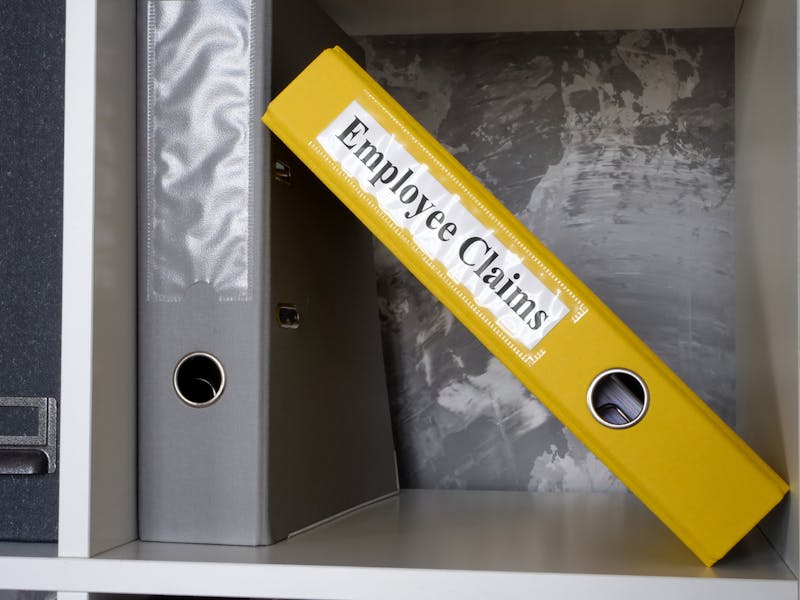
In the realm of employment, understanding the intricacies of workers' compensation is vital. It ensures that you are aware of your rights and the support available to you in the event of workplace injuries. One of the key distinctions lies between employers with workers' compensation coverage and non-subscribers.
At Espinoza & Brock, our team of legal experts fights to make sure that your rights are protected. Let's explore how you can determine whether your employer offers worker’s comp or not, shedding light on this critical aspect of workplace safety.
It is crucial to keep in mind that Worker's compensation in the state of Texas holds a unique position in the employment landscape. Texas permits employers to choose not to provide worker's compensation benefits among the states. When working for such non-subscribing employers, seeking compensation follows the route of demonstrating employer negligence.
Identifying Non-Subscriber Employers
Workers' compensation coverage
Employers who have subscribed to workers' compensation insurance provide a safety net for their employees in case of work-related injuries. If your employer is a subscriber, it means they have obtained workers' compensation insurance to cover medical expenses, lost wages, and other related costs resulting from injuries sustained on the job. In such cases, injured employees can access benefits without having to prove employer negligence.
Non-subscriber employers
On the other hand, non-subscriber employers have chosen not to participate in the workers' compensation system. This choice often stems from various factors, including financial considerations and differing liability perspectives. Instead of workers' compensation benefits, non-subscribers can be held liable in personal injury lawsuits when an employee is injured due to employer negligence. To determine whether your employer is a non-subscriber, their stance on workers' compensation coverage needs to be investigated.
Navigating the inquiry process
Consult the employee handbook or policies
Many employers include information about their workers' compensation status in their employee handbook or policies. Review these resources to ascertain whether your employer provides workers' compensation coverage or not.
Direct inquiry
It's entirely within your right to inquire about your employer's workers' compensation status. You can approach your employer, HR department, or a designated representative to seek clarity on whether they are a subscriber or non-subscriber.
Legal resources
Online legal resources such as law firm websites can provide valuable insights into identifying non-subscriber employers. Referring to these sources of information can illuminate the issue for employees.
Seeking professional guidance
If you suspect your employer might be a non-subscriber and are unsure about the next steps, it's advisable to consult a legal professional specializing in workers' compensation law. They can provide accurate information and guidance tailored to your situation.
Workers comp in the state of Texas
In the realm of employment, Texas stands out as one of the states allowing employers to opt out of offering workers' compensation benefits. For those employed by non-subscriber employers, the path to compensation involves proving employer negligence. Discerning whether your workplace falls under the non-subscriber category is essential. Here are avenues to help you determine if your employer is a non-subscriber:
Division of Workers' Compensation website
Navigate to the Texas Department of Insurance Division of Workers' Compensation website. This platform allows you to confirm your employer's workers' compensation coverage, providing clarity on their status.
Contract clues
If you've signed an employment contract, examine it closely. Provisions within the contract often outline your employer's obligations if you encounter job-related injuries. This can be a valuable indicator of whether your employer extends workers' compensation benefits.
Employee manuals or policies
Delve into any employee manuals or established policies your employer has in place. These documents might unveil whether your workplace has chosen to opt out of offering workers' compensation benefits.
Written notice requirement
Non-subscriber employers are mandated to display written notices at the workplace, explicitly stating the absence of workers' compensation benefits. Although not all employers adhere to this requirement, it's a potential sign to watch for.
FAQ
What are the steps to take if I get injured on the job working for a non-subscriber?
- Reach out to a Texas Work Injury Lawyer who specializes in cases involving employees of Texas Non-Subscribers. Act promptly to initiate the process.
- Request a copy of your Benefit Plan from your employer's Human Resources Department.
- Refrain from signing any documents that are unclear to you.
- Avoid assuming that your employer prioritizes your interests.
- Disregard unqualified advice; seek guidance from professionals rather than friends or family.
- Don't delay in exploring your rights; take immediate action to investigate your options
Can I file a lawsuit against my Texas non-subscriber employer?
If your employer is a non-subscriber, you can legally sue if your injury resulted from their negligence in providing a safe workplace. Unlike workers' compensation cases, non-subscriber cases are often resolved through arbitration for quicker resolution. Your work injury lawyer will ensure your case is ready for arbitration once you've recovered from your injury.
What should I do if your Texas non-subscriber employer is asking you to sign a waiver?
If you're uncertain about a document, avoid signing it and consult a lawyer to clarify its implications. Don't delay in seeking legal counsel; waiting could jeopardize your benefits. Remember that the company and insurance are aligned for their benefit, not yours, aiming to reduce claim payouts. Act swiftly to grasp the truth and protect your interests.
What is the takeaway?
Discerning whether your employer is a workers' compensation subscriber or a non-subscriber is crucial for your understanding of your rights and options in case of workplace injuries. Familiarizing yourself with the available resources and seeking clarification through direct inquiries or legal consultation ensures that you're well-informed and empowered to make the right decisions for your well-being and future. Remember that each state's laws regarding workers' compensation may vary, so ensure that you're aware of the regulations specific to your location.
Javier Espinoza, Lara Brock, and the rest of the team at Espinoza & Brock Work Injury Attorneys have years of experience in helping workers address their workers comp-related issues. Reach out to our office today to schedule a consultation and gain a better understanding of your options in relation to workers compensation.
